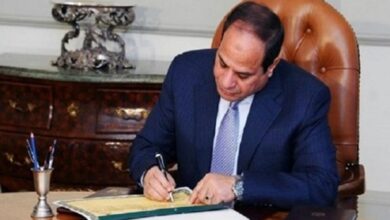Relations between Mohamed ElBaradei and members of the National Association for Change (NAC) have soured, in light of the ex-IAEA chief’s warming ties with other opposition groups.
Confusion has grown, within the association and among the public at large, over whether ElBaradei, the founder of NAC, is in fact its president. ElBaradei denies any claims to leadership of the group.
Hamdi Qandil, media spokesperson for the NAC, said that ElBaradei’s recent actions have been out of line with the association’s own directives and political intentions. Qandil’s comment came as a reaction to ElBaradei’s recent meeting with the Muslim Brotherhood (MB) in Fayoum, and his dialogue with leftists. The two sides have increasingly diverged as NAC members have also visited numerous parties that ElBaradei and his supporters avoid.
Responding to whether or not the association will be affected by these divisions, Qandil said that ElBaradei was never a leader or member of the NAC, though “he is welcomed, whether he is involved [sic] or not.”
Abdel Rahman Youssef, rapporteur of the People’s Campaign for ElBaradei, said the main reason behind the rift is that many NAC members believe ElBaradei is the head of the association, when in fact he is not. Youssef asserted that both ElBaradei and the NAC are entitled to act independently.
Amr Hashim Rabeei, a politics expert at Al-Ahram Center for Political and Strategic studies, said that ElBaradei’s meeting with the MB’s leaders has been informally regarded as a rejection of dialogue with other opposition parties, with the exception of the Democratic Front Party, which could generate disapproval from NAC members who do not support the MB.
Translated from the Arabic Edition.




